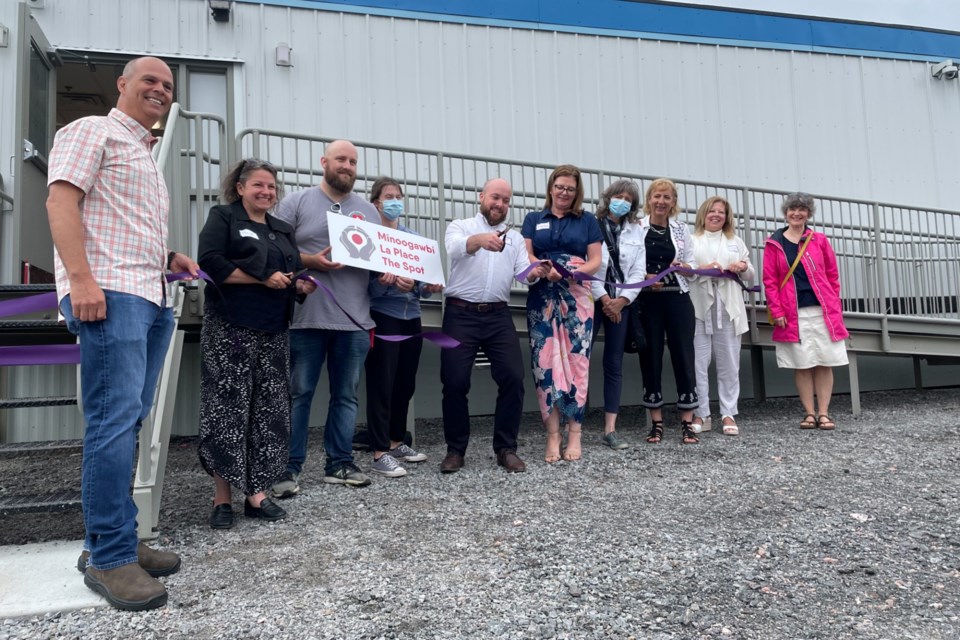There is no doubt Canada is in the middle of a public health emergency related to the poisoning of the unregulated drug supply. What this means is that people are dying at an unprecedented rate, to the point that since 2016 almost 40,000 Canadians have died from drug poisonings, making it one of the leading causes of death in Canada.
While the use of unregulated substances is not new in our society, the introduction of illicit fentanyl, benzodiazepines and strong tranquilizers has dramatically changed the current landscape of drug use.
The COVID-19 pandemic further pushed people into challenging circumstances. These new conditions require more proactive harm reduction approaches, especially in the short term just to keep people alive. Longer-term strategies, including greater access to treatment and recovery spaces, adequate housing and social support, are also critical but serve little purpose to those who are dead.
This is my main argument against the claims reported in a recent article on Sudbury.com featuring the thoughts of a psychiatrist currently in residence, Dr. Jeremy Divine.
Divine’s opinions against the prescribing of a safer-supply of drugs were recently published by the Macdonald-Laurier Institute (MLI), a conservative think-tank based in Ottawa.
According to Divine, safe supply programs are a harm reduction intervention “that has pushed this amoral view far beyond its proper limits” and that a focus on recovery is needed in our current drug policies “to free drug users from the mental prison of addiction”.
He argues that current evidence supporting safer supply “superficially appear(s) to validate the practice of safe supply present data in a disingenuous manner, clearly calculated to maximize the political cachet of the safe supply approach”.
His arguments mirror that of the current right-wing political backlash taking hold in our country, especially within the province of Alberta and its focus on a “recovery” model of care for addiction.
Let’s be clear: Is there danger in doing drugs? Yes. Are there any ways to make doing drugs not dangerous? No. Are there any ways to make doing drugs less dangerous? Yes.
Harm reduction strategies do not eliminate the harms associated with drug use, but help to promote healthy behaviors in an already risky environment. Harm reduction strategies such as safer supply do not come without risks, including the possibility of death.
The evidence supporting safer supply does not focus on all of the dangers associated with it because those are already known — hence the identification of it as a strategy to reduce harm. While all results are documented, the reporting of the results, with all published research, focuses on what the results predominantly showcase. In the case of safer supply programs, results are showing that most people who are a part of these programs (which also include access to health and social supports) report greater control over their drug use, less use of the poisoned unregulated supply, improved personal relationships and an overall improvement in their quality of life.
For more evidence on this strategy, please see the latest research report from the provincially funded Ontario Drug Policy Research Network (ODPRN) that was shared this month.
Recovery and treatment strategies, along with increases in funding supporting health and social programs should not be ignored, as they are important strategies in battling this current crisis. But first we need to accept what harm reduction has to offer. Supervised consumption sites need not be so difficult to start in communities, safe supply needs to be available beyond a pilot program as currently less than five per cent of the community of people who use drugs have access to safe supply.
People claim harm reduction does not work. It does work, when we actually do it, not just “sort of” do it. We are in extraordinary times that call for innovative approaches.
Instead of being so quick to judge a program such as safer supply that is just trying to get off its feet and is showing progress, maybe we need to be more critical of our own views, be more compassionate and start listening to the community of people who are at the heart of this crisis — people who use drugs.
Stop talking about something that you know nothing about.
Karla Ghartey is a nurse based in Sudbury and is one of the founding members of the Sudbury Temporary Overdose Prevention Society (STOPS). She works front-line in a supervised consumption site, is a professor of Nursing at Cambrian College, and is also a Doctor of Public Health student at the University of Toronto focusing on substance use and harm reduction.
